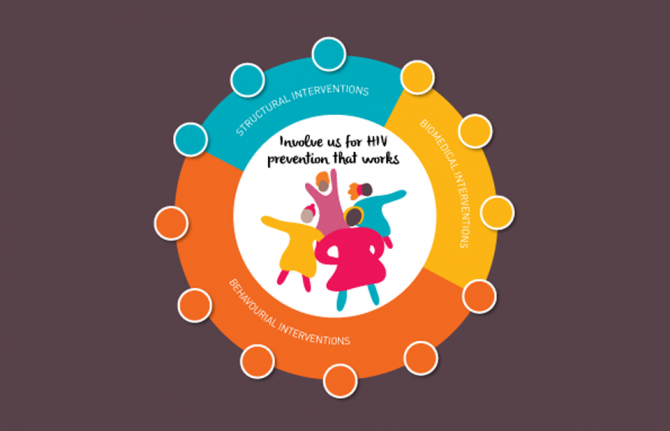

Feature Story
Using social media for a gender-transformative response to HIV
21 March 2018
21 March 2018 21 March 2018During an event held on the sidelines of the 62nd Session of the Commission on the Status of Women, political leaders and activists from the women’s movement and HIV advocacy groups discussed new strategies to engage women and girls in the AIDS response.
Highlighting how technology and media, in particular social media, could be used to enhance the leadership of young women, the participants also discussed how to achieve gender equality in the AIDS response.
The meeting showcased the #WhatWomenWant campaign and how it used social media to mobilize for the United Nations General Assembly High-Level Meeting on Ending AIDS in 2016. As part of the campaign, a feminist blog series, a platform for young female leaders to share their expertise and priorities, was developed. Using WhatsApp groups and Twitter chats, young women were engaged and accessed information on the UNAIDS global guidance on comprehensive HIV prevention. The consultation and sharing using social media resulted in #WhatWomenWant: HIV prevention that works for adolescent girls and young women.
“We have a new generation of young women leaders who use social media to amplify and integrate a feminist leadership to ensure sustainable and transformative results in the AIDS response,” said Catherine Nyambura, from FEMNET, a regional organization of African feminists based in Kenya.
Also during the event, entitled Accountability in Action: Putting Women and Girls in all their Diversity at the Center Through New Social Media, a new report by the ATHENA Network—a global network of 70 partners in more than 35 countries dedicated to advancing gender equality, realizing human rights and building community leadership in the HIV response—was launched. #WhatWomenWant: a toolkit for putting accountability into action gives examples of how to effectively inform and engage young women through digital tools such as WhatsApp, Twitter and Facebook. It also aims to bring a gender-inclusive perspective into developing and implementing policies and programmes and to ensure that young women, including young women living with HIV, can access and contribute to these processes.
“We are looking to digital tools and technologies to evolve the monitoring and accountability agenda in the AIDS response. Our experience can now be shared globally and in real time, unlocking a new world of how we might learn together and deliver,” said Tyler Crone, from the ATHENA Network.
“UNAIDS welcomes the strengthened focus on accountability that has been generated through the #WhatWomenWant campaign. Together, we are committed to working hand in hand to enhance the meaningful participation of women, with a focus on making human rights and gender equality a reality at all levels of the AIDS response,” said Gunilla Carlsson, Deputy Executive Director of UNAIDS.
The meeting, held on 19 March at the United Nations Headquarters in New York, United States of America, was organized by UNAIDS in partnership with the ATHENA Network and #WhatWomenWant partners.



